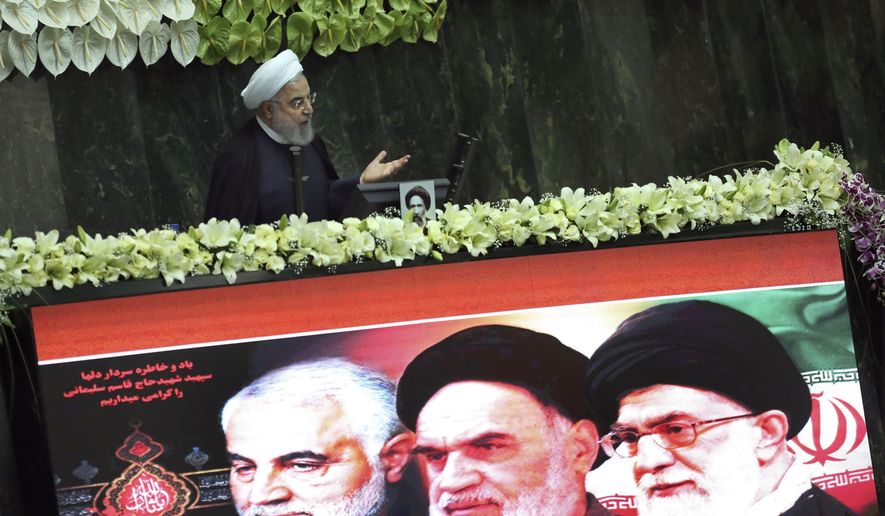The Trump administration announced Wednesday it is revoking nearly every remaining sanctions waiver the U.S. granted Iran under the Obama-era nuclear agreement.
Secretary of State Mike Pompeo announced he is withdrawing all sanctions waivers except one that covers civil nuclear cooperation.
“The Iranian regime has continued its nuclear brinkmanship by expanding proliferation sensitive activities,” he said in a statement announcing the move. “These escalatory actions are unacceptable and I cannot justify renewing the waiver for these JCPOA-related activities as a result.”
He claimed Iran has participated in “nuclear extortion” and said it will “lead to increased pressure on Iran and further isolate the regime from the international community.”
Mr. Pompeo also sent a message directly to Iranian nuclear personnel: “make a choice — work for Iranian proliferation organizations and risk being sanctioned or put their skills to work for the Iranian people in pursuits outside of the proliferation realm.”
President Trump withdrew from the Joint Comprehensive Plan of Action (JCPOA) with Iran in 2018 despite European opposition, a move that allowed the U.S. to reinstate economic sanctions against Tehran that had been waived under the deal and add new sanctions.
The so-called “civilian-nuclear cooperation” waivers were designed to allow foreign companies to do work at some of Iran’s declared civilian nuclear sites without being subjected to U.S. penalties.
Supporters of the extension of the waivers claimed that it allowed officials and experts the ability to gain inside knowledge of the Iranian nuclear sites, while critics said the waivers could give Iran access to technology that could be used in weapons development.
Ending the waivers will now prohibit Russian, Chinese, and European companies from conducting business with Iranian non-military nuclear facilities, and would ignite American sanctions if work with Iran continues.
The waivers will stop after a 60-day wind-down period that allows companies and entities involved in activities with the Iranian civilian facilities to break off ties.
Last March, the waivers were renewed with an expiration date of the end of this month. But Mr. Pompeo at the time opposed the extensions, citing continuing nuclear expansion in Iran.
The move comes amid escalating tension between the U.S. and Iran after a handful of Iran’s IRGC boats made threatening approaches to U.S. warships conducting joint operations with Army attack helicopters in international waters.
The clash prompted Mr. Trump to authorize the U.S. Navy to “shoot down and destroy any and all Iranian gunboats if they harass” American ships.
Mr. Pompeo on Wednesday also cited Iran’s repeated threats to “wipe Israel off the map” and recent anti-Semitic remarks made by Iranian Supreme Leader Ayatollah Ali Khameni.
“The regime’s vile rhetoric only strengthens the international community’s resolve to counter its threats,” the secretary said.
Mr. Pompeo explained that the U.S. will provide a 90-day extension waiver to cover international support to the Bushehr Nuclear Power Plant Unit 1, a waiver that predates the Iran nuclear deal, “to ensure safety operations.”
He said the U.S. “will continue to closely monitor all developments in Iran’s nuclear program and can modify this waiver at any time.”
• This story is based in part on wire reports
• Lauren Toms can be reached at lmeier@washingtontimes.com.




Please read our comment policy before commenting.